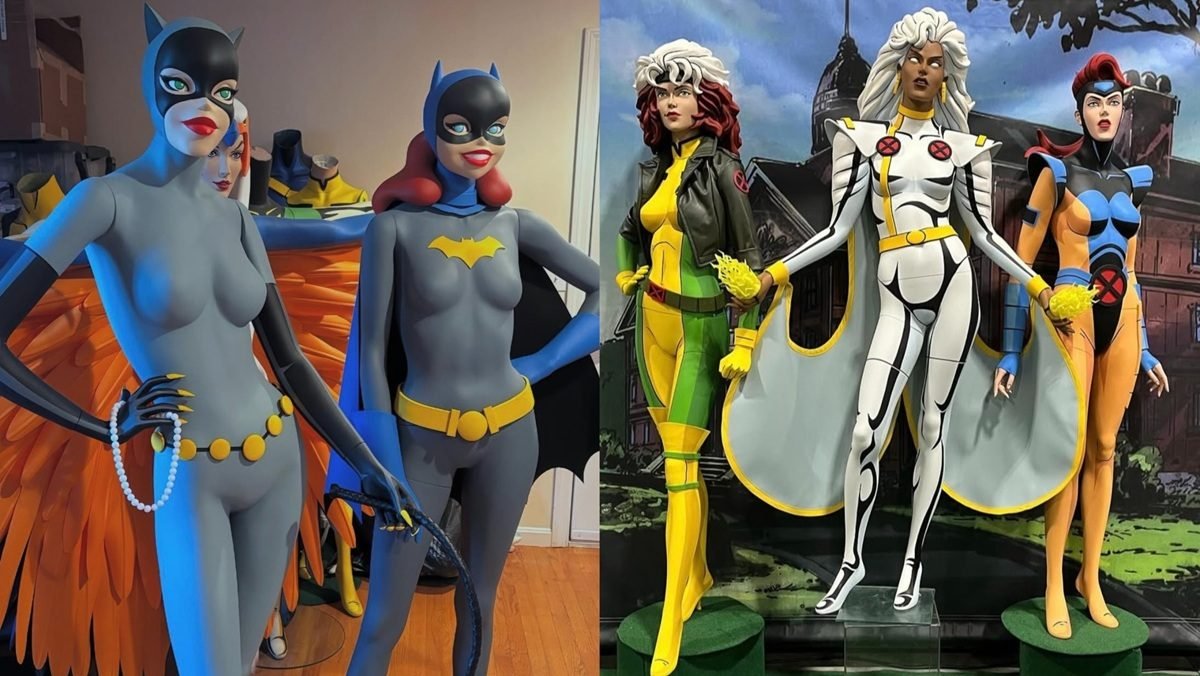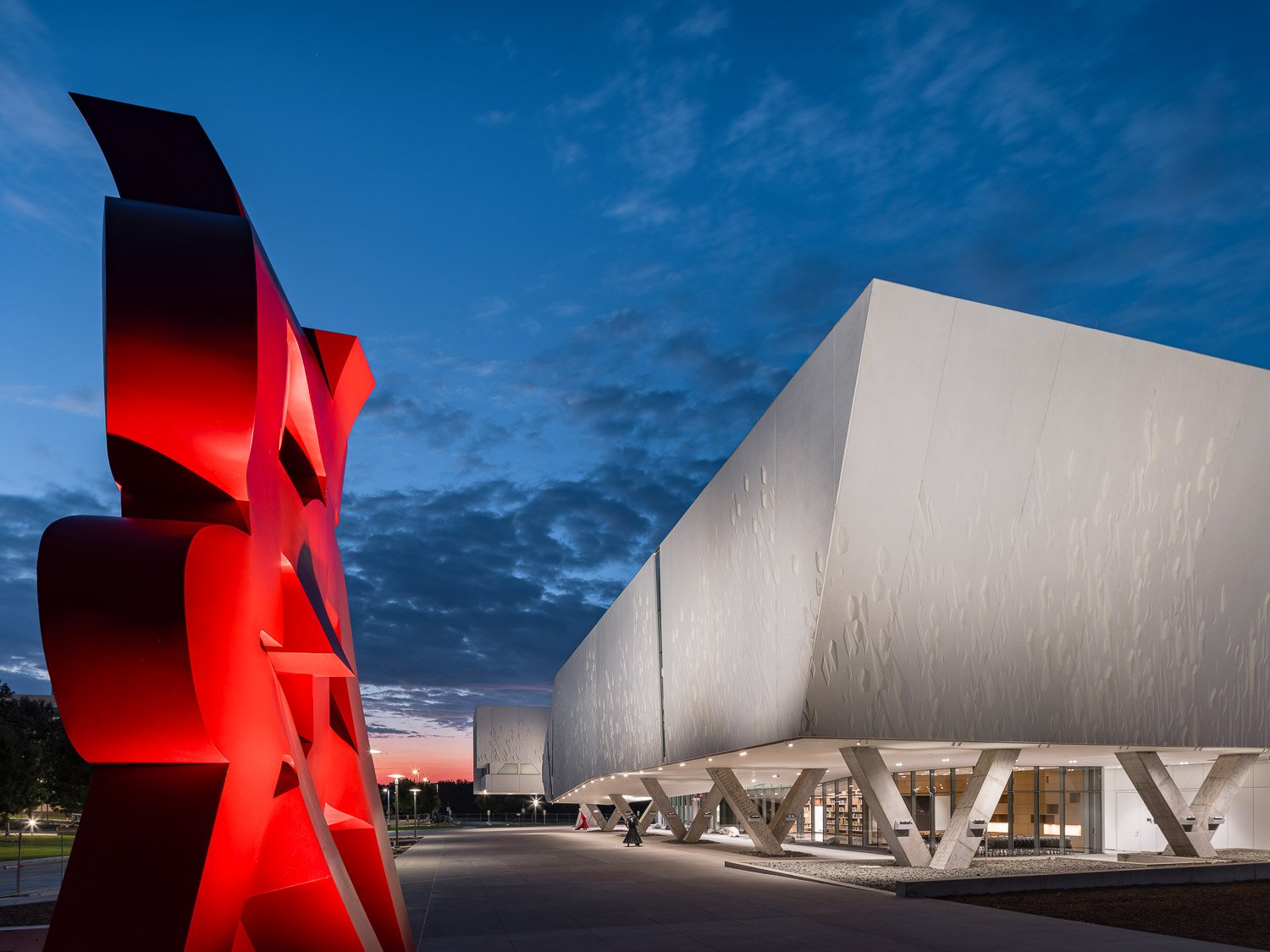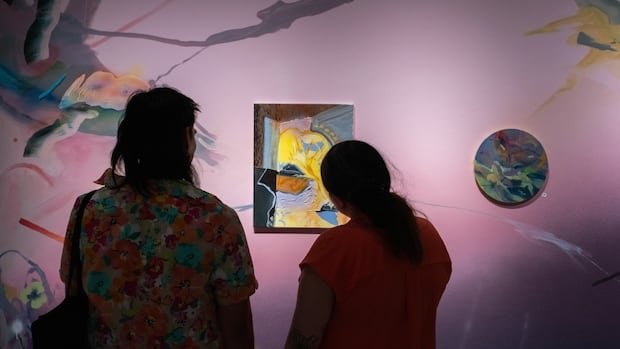“The unnatural, that too is natural,” Johann Wolfgang von Goethe wrote at the end of the 18th century. While Goethe could never have predicted our technology-saturated age, his centuries-old words take on new resonance when considering the work of multidisciplinary artist Mika Tajima.
The artist, who joined Pace Gallery in 2022, creates data-inspired, medium-bending works that ask: just what does “acting natural” mean in this day and age? And how—in a culture fixated on self-optimization—has technology reshaped our innermost beings? 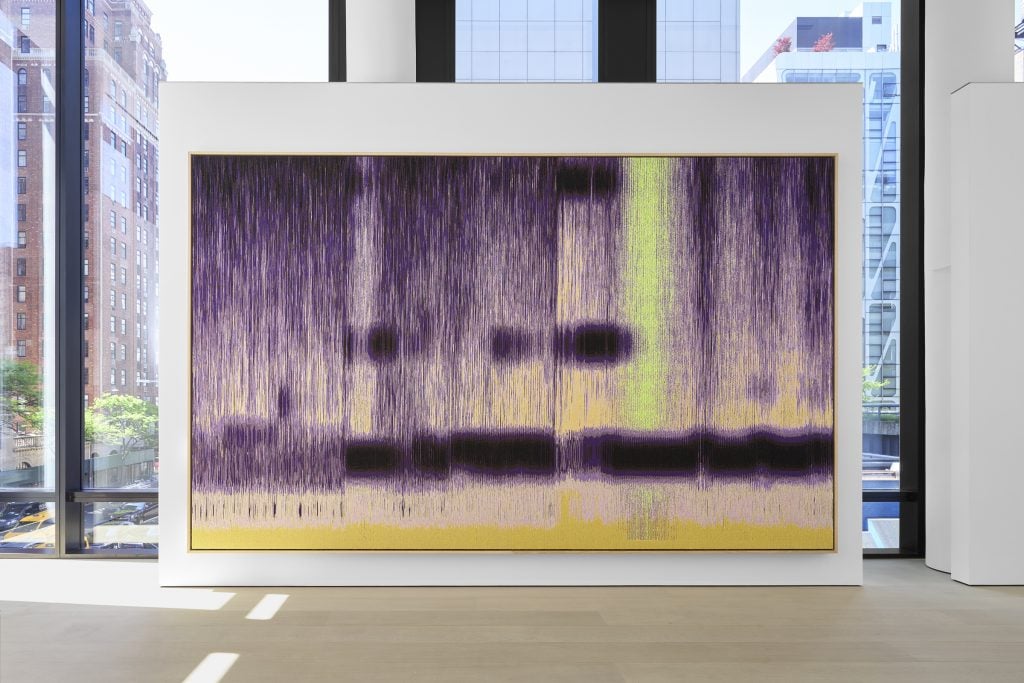
Installation view: Mika Tajima: Super Natural. Hill Art Foundation, May 3–July 26, 2024. © Hill Art Foundation. Photo: Matthew Herrmann.
“What defines our identities beyond just our physical beings?” Tajima asked me during a visit to her Brooklyn studio earlier this spring. “With technology, we exist in a virtual capacity so that our identities are more than just you standing right in front of me right now. The way we present in different locations is distinct from our internal private selves, our inner worlds. The fact is, the external world is shaping us.”
Tajima embraces materials far and wide in her investigations. In her studio, large-scale abstract woven works can be seen beside colossal rose quartz crystals affixed with brass-cast jacuzzi nozzles, hydrotherapy tubs, in eye-popping gradient hues, and blown glass sculptures. Her artworks, Tajima explains, are often visualizations of data she has collected, giving form to invisible forces or sources of information and stimuli that influence our lives.
“My works often reference physics and technology as metaphors for our lived experience and for how technology and techno-capitalism shape our world,” she explained. “And what does this all mean now, for an individual? Where does our agency lie?”
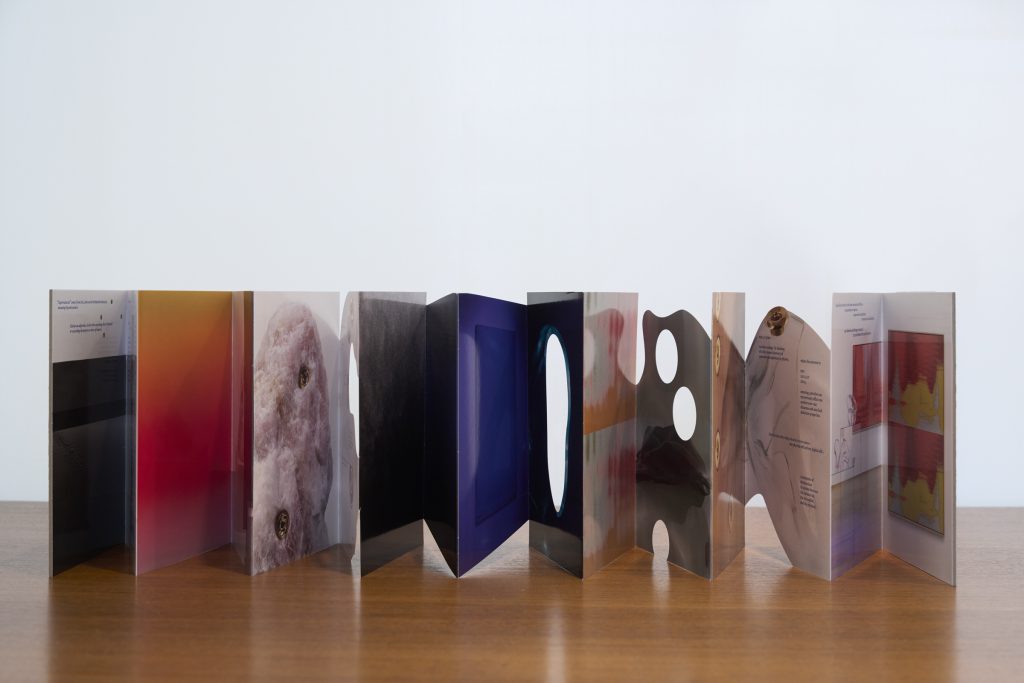
Installation view: Mika Tajima: Super Natural. Hill Art Foundation, May 3–July 26, 2024. © Hill Art Foundation. Photo: Matthew Herrmann.
Right now, a wide-ranging curation culled from Tajima’s recent series is on view in “Super Natural” a recent exhibition at Hill Art Foundation in New York (through July 26). At the heart of the show is new work in Tajima’s “Negative Entropy” series of woven paintings. This ongoing series of works employs segments of auditory spectrograms, which Tajima crops in on and assigns colors. The textiles are produced with a textile lab in the Netherlands, one of the only facilities with looms large enough to bring Tajima’s visions to large-scale reality. In “Super Natural” Tajima debuts her largest work in the series to date, entitled Negative Entropy (Inscape, Breathing Exercise, Full Width, Burgundy, Hex) (2024).
“I call these works acoustic portraits—visualizations of audio recordings of specific sites or experiences, places, people,” she explained. “For this show, I based the work on a recording of a sound bath meditation and the spectrogram translation of that moment has become this architecturally scaled woven textile that fills a massive wall in the Foundation.”
Also included in the show are works from her Pranayama monoliths—rose quartz works that combine ancient healing properties with nods to contemporary jacuzzis, as well as blown glass sculptures in her Anima and Mirror series that hint at the forms of bodily braces and prosthetics but are ultimately formed by material chance interactions, along with other works.
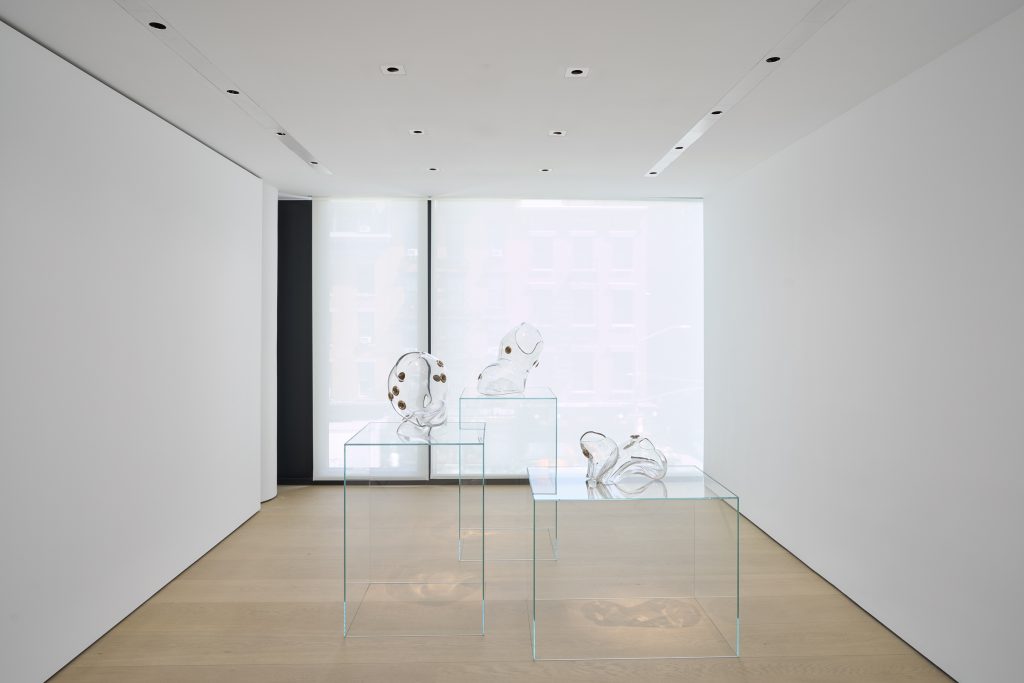
Installation view: Mika Tajima: Super Natural. Hill Art Foundation, May 3–July 26, 2024. © Hill Art Foundation. Photo: Matthew Herrmann.
This sweeping exhibition follows Tajima’s show “Energetics” at Pace Gallery in New York in January and February of this year, which marked her first New York show with the gallery since joining in 2022. This exhibition centered around the large-scale textile paintings from Tajima’s “Negative Entropy” series, based on neuroscientists’ spectrograms of patient’s brain activities reacting to various stimulations. The exhibition also included olfactory and other sensory artworks. This exhibition also marked the first showing of Tajima’s work in New York since her 2016 Sculpture Center installation Meridian, a light sculpture, that adjusted, in real-time, to collective moods on Twitter relating to specific geographic regions.
Tajima’s career has recently hit its stride with several exhibitions on the horizon and an engaged collector base. “Mika’s projects continue to grow in ambition. Her most recent development involves scaling one of her foundational series, ‘Negative Entropy,’ into a large-scale architectural centerpiece. I’m thrilled to share that this stunning piece at Hill Art Foundation has been sold to a very prominent private foundation,” said Colleen Grennan, senior director at Pace Los Angeles. “With upcoming shows in London and Hong Kong, her international recognition is set to soar.”
Now this fall, Tajima’s works will be included in “Breath(e)” a group show curated by Mika Yoshitake and Glen Kaino for Pacific Standard Time focused on climate change and social justice and their intersection with art, at the Hammer.
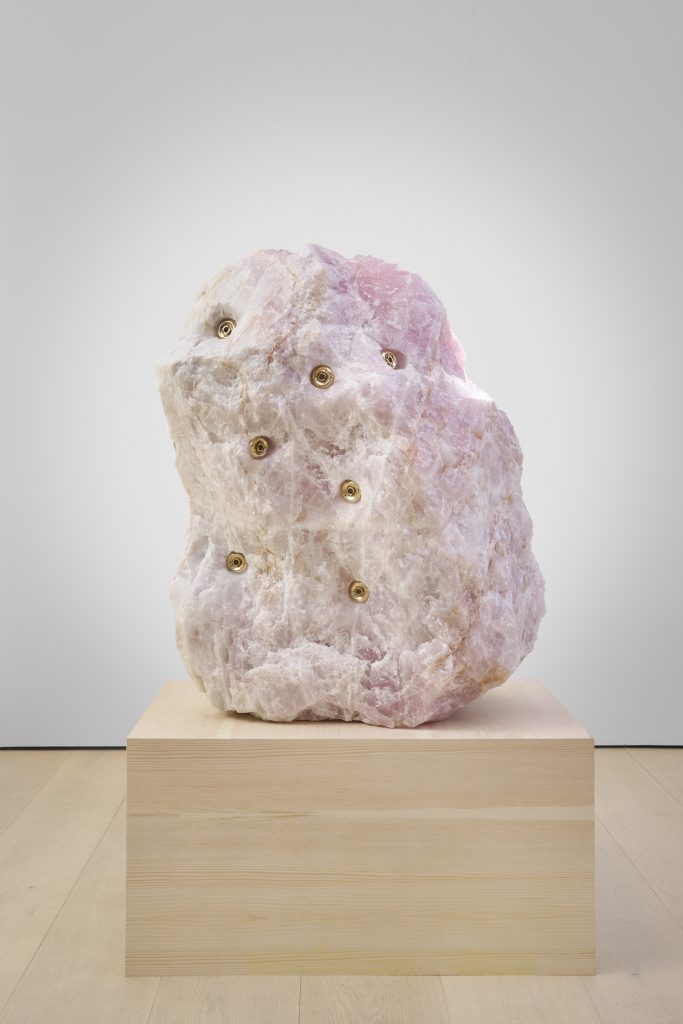
Installation view: Mika Tajima: Super Natural. Hill Art Foundation, May 3–July 26, 2024. © Hill Art Foundation. Photo: Matthew Herrmann.
For Tajima, her artist-science contemplations are the natural evolution of her lifelong interests. While an undergraduate at Brynmawr, the artist found herself embracing printmaking because she felt it was the most expansive course of study available to her. “Painting and sculpture were too direct for me. I wanted to make installations through mechanical production repetitively through industrial processes. I was interested in the mechanization of image making.” These interests dovetailed with Brynmawr’s focus on feminist education and identity.
“Through that education, I began questioning power, questioning structures,” she said. Eventually, these interests led her to the intersection of architecture, modernism, and capitalism, where her work today still finds motivation.
But for Tajima, technology’s influence is not something she sees as inherently negative. Her works, she says, are not meant to be dogmatic.
“How can we transcend what is trying to be constrictive, restrictive, definitive, or categorical?” she said. “Technology is in some ways an enhancement, it’s a prosthetic—whether it’s bondage, a brace, or an aid—you have to find that balance of power for yourself. My relationship with technology is just like anybody else’s—complicated.”
Amid our fraught geopolitical moment, Tajima sees immersion, both in scale and experience, as a way to celebrate our somatic, lived experiences. On July 12, the exhibition will host a live techno sound bath in the exhibition performed by the experimental musician Darren Ho. Visitors will be able to lie on yoga mats in the exhibition and be enveloped by his compositions
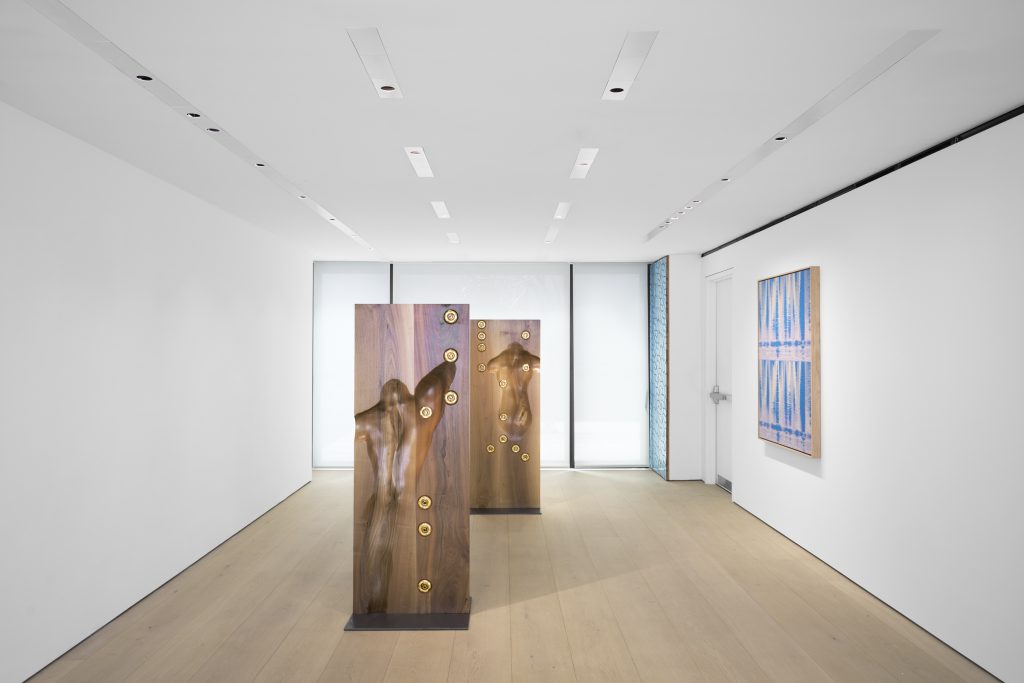
Installation view: Mika Tajima: Super Natural. Hill Art Foundation, May 3–July 26, 2024. © Hill Art Foundation. Photo: Matthew Herrmann.
The experience surrounded by Tajima’s colossal new work, works she hopes can impart some sense of the sublime to those who see the show.
“Massive scale gives us that experiential feeling of something beyond ourselves. The deep meditation feeling that we had to be there to experience it, that there’s a specialness, uniqueness, and particularity to one’s experiences and presence,” she said, “That sensation can give us a sense of scale, in the age of big data and geopolitics, and a sense of agency. There’s a larger-than-life contradiction. I’m just one tiny person but what I’m experiencing can be enormous”
Follow Artnet News on Facebook:


